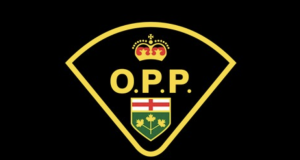 Anyone who has tuned in to watch TV recently has probably been greeted with ads from Doug Ford and the PC party. There’s even a chance that you’ve seen ads circulating and paid for by the province of Ontario that tout this government’s success in leading the province.
Anyone who has tuned in to watch TV recently has probably been greeted with ads from Doug Ford and the PC party. There’s even a chance that you’ve seen ads circulating and paid for by the province of Ontario that tout this government’s success in leading the province.
It seems to me that the Premier has bought into the words of the Hollywood film producer Joseph E. Levine, who said, “You can fool all the people all the time if the advertising is right and the budget is big enough.”
For Ford, the budget doesn’t just refer to the amount of money put into producing these commercials (although I will get to that). He has adopted this philosophy into his governing practices, spending huge sums year over year so he can spin himself as a man of the people.
In Budget 2024, the government expects to bring in $204.3 billion and spend $207.3 billion, meaning the government will spend more than any before it and will be responsible for creating the largest deficit ever outside of the COVID-19 emergency.
For the average person, breaking down a budget the size of Ontario’s and determining its merits on paper is difficult. We can see the effects of the budget on the ground. When hospital wait times are increasing, emergency rooms are routinely closing, and highway infrastructure is crumbling, we obviously think insufficient money is being spent. But when we are presented with a budget that spends more money than we can get our heads around, it makes us second guess ourselves.
Government budgets have a murkiness about them that some argue is by design. They tend to be general statements on spending and only a broad overview of Ontario’s fiscal position. They do not provide citizens with an in-depth look at how the government will spend in the coming fiscal year.
So, as Budget 2024 is debated in the legislature, I think it is worth looking at how Premier Ford spent money in previous years and if it has been effectively put to use by the people of Ontario.
You may remember that a key part of Mr. Ford’s pitch to the electorate when he ran in 2018 was that he would trim the fat from “runaway” budgets and put an end to government waste. And before that, when he ran to become a Toronto city councillor, he came across with an appeal to voters that he would end the “Gravy Train” that was giving out favours to a select few.
Looking at the Premier’s track record on fiscal management, I have to say it does not match his rhetoric.
In fact, in the Premier’s own office, expenses have risen, not just steadily but also by leaps and bounds. Before he took office there were 18 members of the Premier’s staff who were making more than $100k a year. After Mr. Ford took over, that number increased to 20 in his first year but now sits at 48. Collectively, these employees were paid $6.9 million last year. That is a 136% increase to the Premier’s staffing budget in 5 years.
Runaway office expenses are one thing, and it should give Ontarians serious pause when they weigh whether the Premier was being honest in his promise to bring fiscal responsibility to Ontario. But there is an even more concerning trend with this supposedly conservative government of siphoning public money into private pockets at alarming rates.
On the day the 2024 provincial budget came out, Daniel Dufort, president of the Montreal Economic Institute, wrote in the Globe and Mail about Premier Ford’s growing largesse regarding corporate subsidies. He found that “Ontario has spent an average of $9.1 billion a year in constant dollars” of taxpayers’ money on handouts. Making Ontario the jurisdiction with the greatest average transfer of public funds into corporate bank accounts.
Now, I will concede that there are times when public funds being used to spur economic action produce results for Ontarians. However, the level to which this government has taken subsidies is unprecedented, and a detailed review raises questions about how this government gives them out.
I looked back at the Auditor General’s (AG) and the Financial Accountability Officer (FAO) reports since Ford took office, as they provide valuable, independent oversight into the effectiveness of government spending. More than a few alarming trends can be seen in the documents their offices have published.
In 2021, the AG looked at spending during the height of the pandemic. This was a time when the government was spending more than ever to blunt the economic impacts that this global emergency was having on people and businesses in Ontario.
The government budgeted $11.2 billion for programs targeted at businesses. Upon auditing the books, the AG found that these programs “lacked clear goals and eligibility criteria were poorly defined, allowed thousands of ineligible businesses to receive funds.” In fact, she found that around $230 million was given to ineligible businesses through those programs.
Again, in 2021, the government was exposed for forgiving $1 billion in penalties that the 407 Express Toll Route private operators owed to Ontario. A subsidy by any other name, the money should have been part of the provincial budget. However, a deliberate policy decision was made not to seek payment.
In 2022, the government offered the Ontario Tourism Recovery Program, which purported to provide funds to the sector after the pandemic slowed their businesses. It took them over a year to roll out the funds after they had announced it would take weeks, which cost many medium- and small businesses who were banking on support to get by.
A later review of the program by CBC revealed that among the recipients who got funds were major airlines and “companies who own hotels but whose main business is construction or real estate.” Hardly the local tourism operators that suffered the most during the province-wide shutdown.
In 2024, we are still learning about the government’s deal with the private spa company Therme to reopen Ontario Place. The 2023 AG report uncovered that the government had signed a contract requiring it to build a parking structure for the company at an estimated $307 million.
To top all of this off, government-paid advertisements, which I referenced at the beginning of this column, were purchased to the tune of $24.89 million. The Auditor General’s office said these commercials’ content was essentially partisan.
Unfortunately, the Auditor General no longer has the power to prevent partisan ads from being paid for with public money because the Premier went back on his 2018 promise to reinstate the parts of the Government Advertising Act that allowed them to do so.
In my opinion, the Premier’s lambasting of the “Gravy Train” rings hollow when compared with his track record. So, when he once again presents a budget that spends more than ever but includes real-dollar cuts to healthcare, education, and social services, we should be wary of his government’s attempt to spin the story.
Premier Ford has relied on the size of his budgets to provide cover for his spending habits. It is easy for him to point out that he is spending billions upon billions, and Ontarians are inclined to believe this is going towards them. It is only once we take a fine-toothed comb to the books that his hypocrisy comes out.
As always, I invite you to contact my office about these issues or any other provincial matters. You can reach my constituency office by email at [email protected] or call Toll-free 1-800-831-1899.
- MPP Michael Mantha Raises Concerns about Changes to NOHFC - January 27, 2025
- A Good Idea is a Good Idea –No Matter Where it Comes From - January 27, 2025
- Ford doit écouter, même si le message vient de l’autre côté de l’allée, et rendre nos routes plus sûres - January 27, 2025
 Wawa-news.com Local and Regional News
Wawa-news.com Local and Regional News
